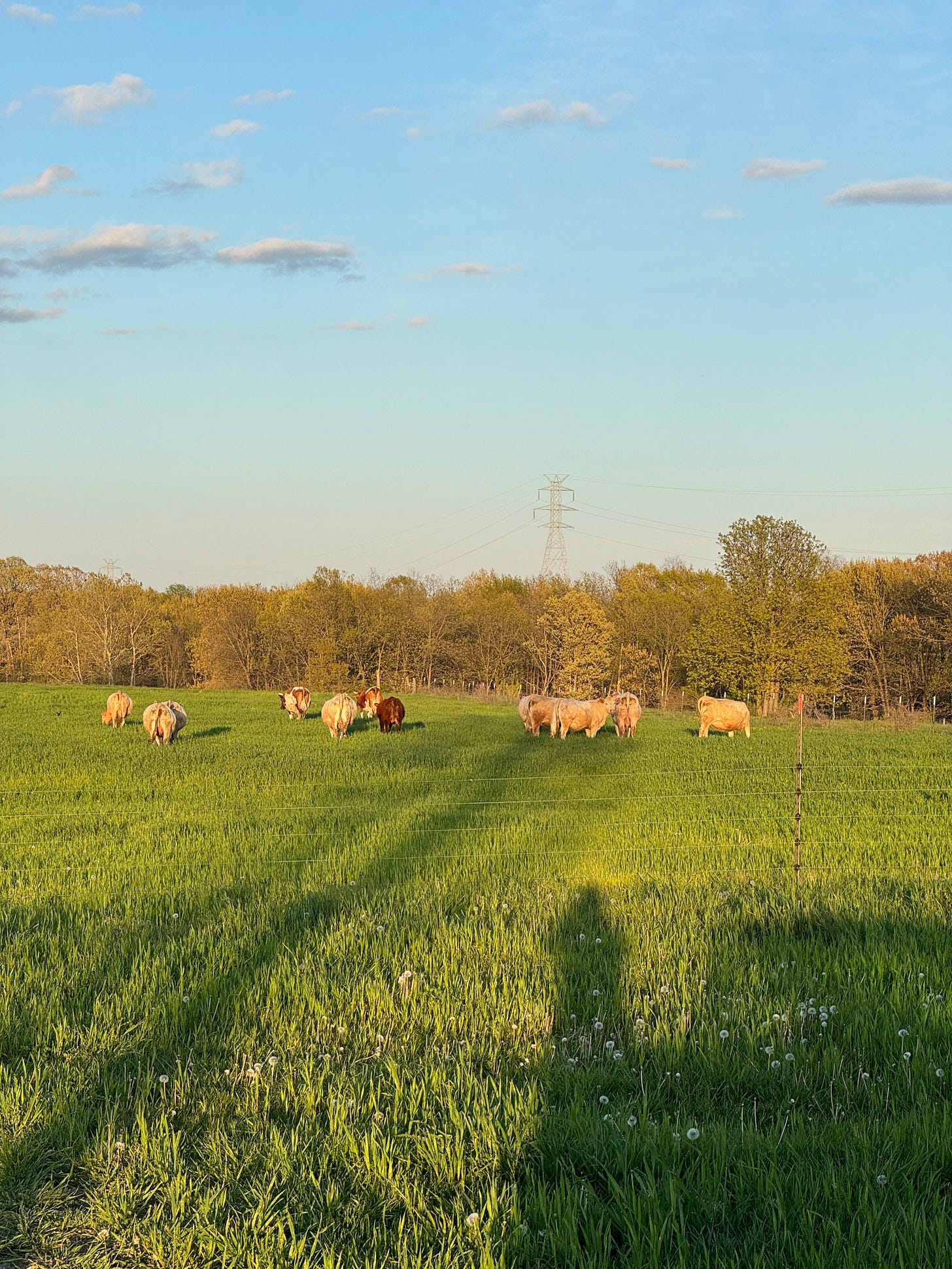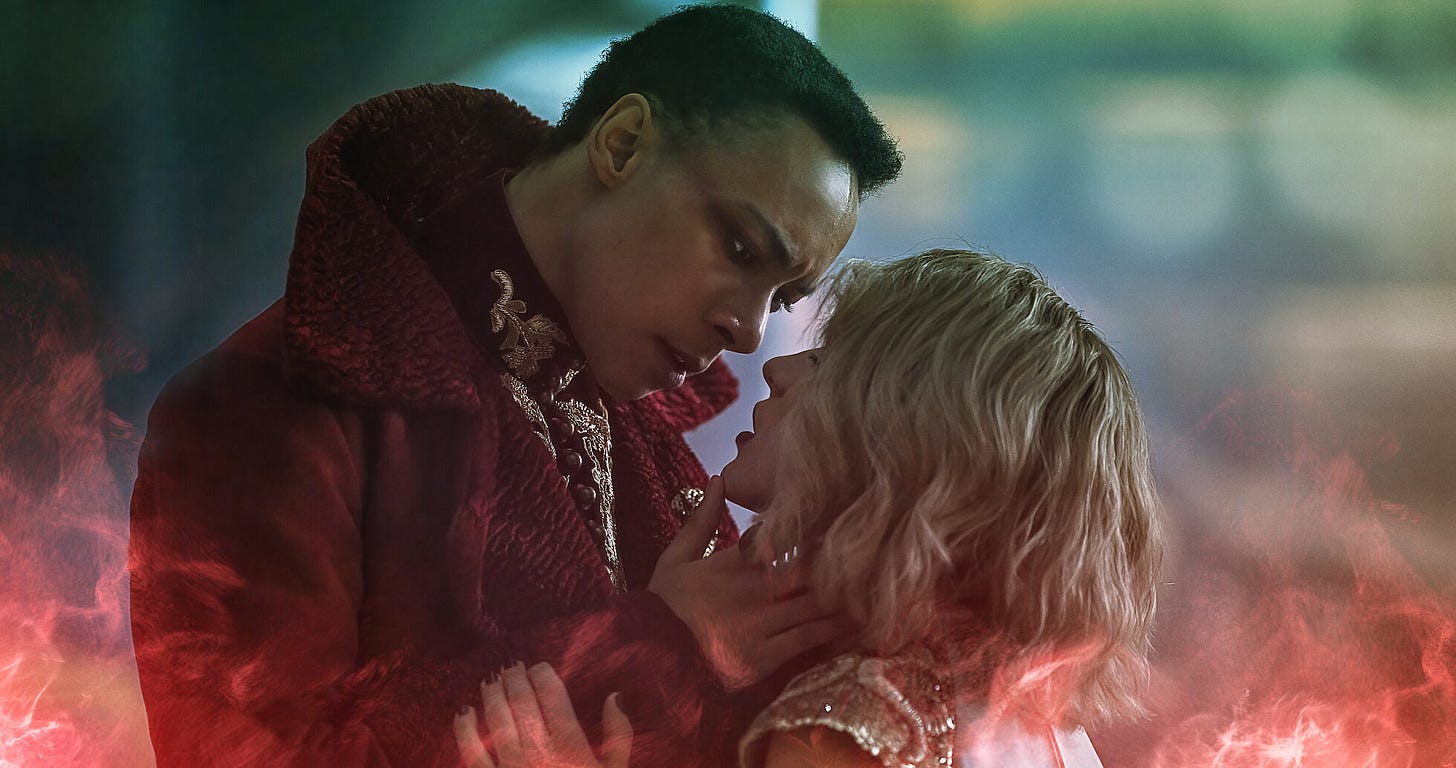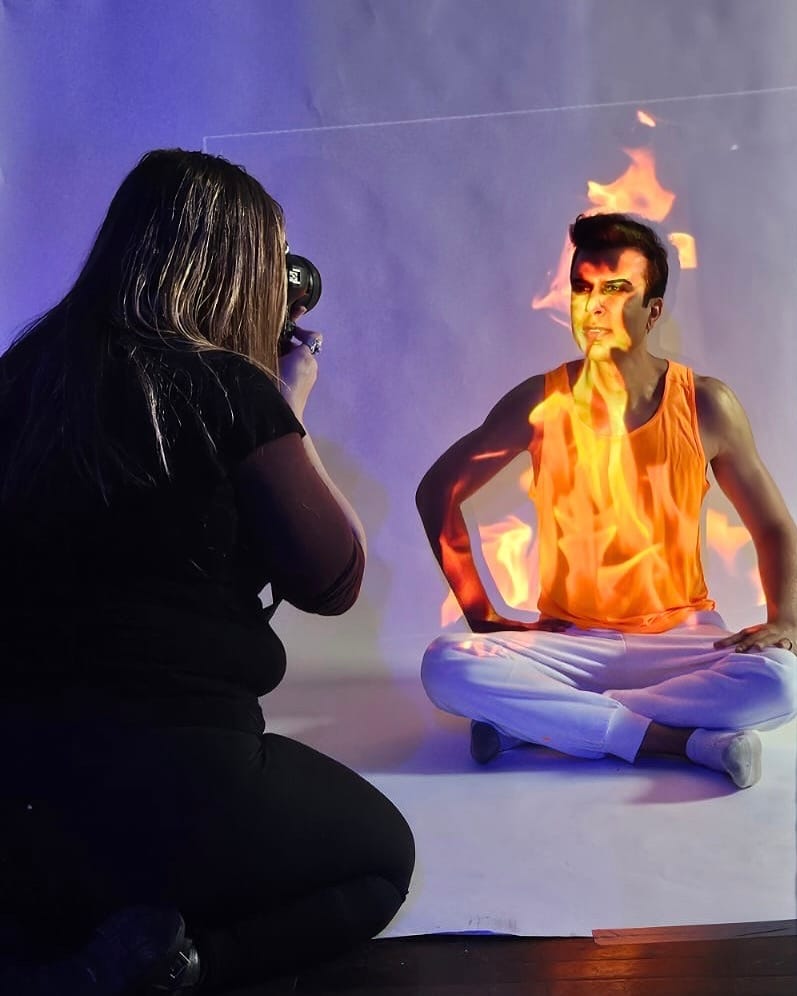Something happened this past week where I realized how quickly AI is moving.
It started showing up everywhere I looked —
On the French Open website, where while checking scores, I was greeted by an AI commentator narrating each point with cheerful humanisms like “Pressure mounts, resulting in an unforced error! Game of margins!” (Even more alarmingly, you can choose who you want AI to root for, so now the previous commentary is rewritten as: “Frustrating error for Djokovic! Tough break!”)
Then, at a photo shoot, my makeup artist kept taking behind the scenes shots of me that were just unbelievably good — better than anything we were getting on camera — and I started to feel quite high on myself, before we realized that her Samsung came with an automated AI spiff-up filter that turned me into a supermodel in any frame. (“It gave me a new nose!” I gasped. “Whatever it’s doing, it’s wonderful,” she chimed back, clicking away.)
Then a piece of news broke that no one paid much attention to, but made my skin crawl — OpenAI is investing billions into certification devices that will verify each of us is human. Meaning to be a card-carrying member of the species, you’ll need proof of your own life.
The next day, publishing gossip exploded on Threads with rumors that certain upcoming, highly-touted book(s) are actually AI-written or AI-assisted — which, forget the ethical concerns, led to an all-our brawl on social media over whether authors should just accept that writing a book the old-fashioned way is a route to becoming vintage.

All of a sudden, it feels like we tipped over the edge.
The robots are among us.
Unlike a lot of authors, though, I am not an AI purist. In fact, a year ago, in this very diary, I wrote multiple entries about how it’s a fantastic tool for research and analysis — and that resisting it will not only deprive you of opportunities to enhance your own creative process, but also be a sure path to misery, because unless you’re living off-grid with a flip phone and dial-up… AI is going to be part of your life.
I’ve learned to make ChatGPT a friend. A sample of my searches over the past 24 hours:
2500 word speech — how long will it take to give it
how many times can I eat tuna salad in a month before I get mercury poisoning
make me a committee of 100 people of different genders and ages and ask them to vote on whether they like [redacted]
talk me through brightness levels on Pantone printing for stained edges
give me a list of 100 words that librarians and teachers really resist seeing in a book
Funny story — my farmer partner is an instinctive Luddite who is suspicious of new technology, so for the first year of me using ChatGPT, he thought I’d gone to the Dark Side.
Then one day, he was trying to figure out how to maximize his cow herd size, but kept running into too many variables. Really, you should try the robots, I told him. Finally, he acquiesced, if only to prove that farming and chat-bots had nothing in common.
Cut to two months later: his herd is bigger, healthier, stronger than ever, because he’s used the robots to develop, refine, and test each of his plans.
It’s part of his farming process now. Just like AI is part of my creative toolkit.
BUT there are limits.
AI will not look into a cow’s eyes and be able to tell if it’s thriving.
AI will not write a book that gets us somewhere new.
But judging from some recent rumors… it might write a book that makes you rich.
Upcoming writers, particularly young ones aspiring to join the profession, will have to decide whether success and the heat of fame is worth flying too close to the sun.
And I don’t even mean in terms of just being found out as an AI author. I truly believe at some point in the next 2 years, that’ll just be part of the game. We’ll accept that some books are AI-written and others aren’t.
What I really mean is that writing with AI comes with a serious cost to your soul.
The sheer idea of using AI to generate actual published writing gives me a sick, sick feeling for a number of reasons:
1. The whole point of being a writer is to take the unconscious and make it conscious. I am generally uninterested while drafting a book what the reader is going to get from it. What I care about is my own therapeutic need for expression. Yes, the end result matters, but I’ll worry about that once the book is done. All I care about during drafting is getting this monster out of my darkness and exposing it to light.
Writing is difficult. It’s a nightmare most days! But every time, when I finish my work for the evening, I feel a deep sense of relief. I’m psychically free, at least for another 24 hours. Writing is the only thing I’ve ever found that makes me feel like me.
Even if a robot could replicate my voice, even if it could generate the biggest juggernaut bestseller that the whole world believed was me… I’d take a big, honking failure over it every single time that I wrote myself.
Because the writing is what heals me.
I don’t care about anything else.
2. How do you sit in front of a reader at a signing table and look them in the eyes and sign a book that you did not write? Now you’re the robot too!
3. I think the argument some AI writers will give is that they use prompts to generate ‘text’ from the robot that they then edit the hell out of into their ‘own work.’ The AI just gives them a starting draft that they shape into their own distinct vision.
My response is: The blank page is where the unconscious lives. Because in that blank page is where you have to surrender to the shadow inside you and actually find out what it is you’ve hidden from yourself. Yes, the blank page is scary. I hate it as much as you do! Writing this diary right now is part of that eternal war against the blank page. But I have my own robot inside me, one that is flawed and messy and limited, and in being able to express myself this way, just surging words onto blankness, I’ve given myself a true starting point for understanding.

If this was a novel, I’d go back and refine these words for weeks, months, years, until it captured every dimension of me, tested by time.
But because it’s my diary, I’m not allowed to polish these first drafts. That’s my rules. The blankness is filled up and then it is yours.
4. AI is a regurgitation device. It can pretend to take us to new realms, but in reality, it’s mirroring the patterns of past successes. It’s why, apparently, it’s become very, very good at writing Romantasy. There’s just so many tropes and data points for it to work with.
But what turns me on as a writer is the complete opposite of tropes and data points. My creative goal, always, is to keep inventing lanes where people say they don’t exist.
The School for Good and Evil is a tween romantasy — a genre that wasn’t allowed or welcomed at the time, but I was hellbent on delivering, because I knew full-well that middle-school girls are obsessed with romance, even if they weren’t living any of it.
Beasts & Beauty is an attempt to give modern kids fairy tales as dark as the Grimms ones that they’re usually not allowed to read anymore.
Young World is… I don’t know what Young World is, to be honest, other than a Molotov cocktail exploding from inside me, a book and vision which even I am shocked by. Meaning I can guarantee you: it’s nowhere in a robot’s consciousness.
None of these books would be. Because I discovered them in the act of writing.
Cheating to get to the end doesn’t just shortcut your own personal catharsis. It shortchanges the discovery. Your route to becoming who you are on and off the page.
So yes, that’s why I don’t use AI to write.
And why, maybe in time, I’ll be left behind like an old wine in a cellar. But I don’t care. My perfect day is still tennis, writing, lifting, writing, walking the farm with my partner, and I’ll have as many of those as I can, before I’m bones and dust, without the slightest angst. Because the robots can’t do any of these things for me.
There you go. My proof I’m human.
How are you dealing with the robots?
Until next week —










Soman I just love you, please never stop sharing these entries with us
like all technology: WE DIDN'T ASK FOR THIS.
like the meme going around: how about some robots to cook and clean so we have time to CREATE.
i want the option to turn it off.
i hate it i hate it i hate it, soman!!!
i'm tempted to get off the grid so they don't steal my soul. (dramatic, but, uh, looking at lit from the past 30 years, it's kinda coming true, so....)
i don't post art on insta anymore. but who's to say bluesky actually ISn't also being scanned to steal our stuff to feed the robots?
or that when i make an adobe acrobat pdf to email to art directors that they aren't using that to feed the beast and steal my work to make robot art?
for all the reasons you and other writers have said: humans are robbed of the process of finding and creating and digging deep, and there is no staring into the eyes of cows (or patients, or patrons, etc) with ai.
i hate it and I WANT IT TURNED OFF.
we don't need to look like supermodels.
i don't need it to write an email or a comment or a caption for our videos.
i don't need it to find my friend's page on instagram so i can send them a message or head to my fave bookstore/coffee shop/restaurant's page to find their hours...
call me a medieval charlatan, but i hate it all and would burn it all down if i could.
found the first three episodes of this podcast essential... but the "how to fix it" is kinda only for canadians... how do we fix it in america??? :(
https://podcasts.apple.com/us/podcast/understood-who-broke-the-internet/id1673817105